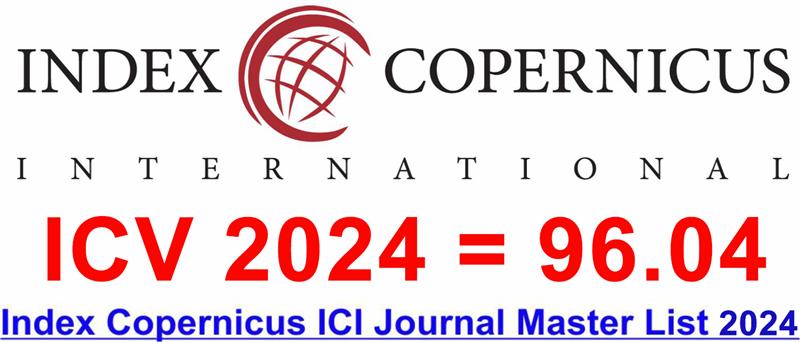Cloud Resources Utilisation and Science Teacher’s Effectiveness in Secondary Schools in Cross River State of Nigeria
DOI:
https://doi.org/10.60072/ijeissah.2024.v2i02.008Abstract
Background: This study investigated the impact of cloud resources, a component of cloud computing, on science teachers’ effectiveness in secondary schools in Cross River State. Three research questions and three alternative hypotheses guided the study. Method: The descriptive survey design was adopted for the study. The population of the study comprised 1209 science teachers in public secondary schools of Cross River state. Sample: A sample of 487 teachers was drawn from the population using stratified random sampling technique. The researcher-made structured questionnaire with 18 was used for data collection for the study. Research question one was answered using the Pearson Product Moment Correlation, while research question two and the hypotheses were answered using the Analysis of Variance (ANOVA) statistics in the Statistical Package for Social Sciences (SPSS) at a 0.05 level of significance. Results: The results of the study revealed that there is a positive correlation between the utilization of cloud resources in teaching and teaching effectiveness among science teachers in secondary schools in Cross River state; there is a negative correlation between gender and utilization of cloud resources among science teachers in secondary schools in Cross River state; and that there is a significant correlation between teaching experience and the utilization of cloud resources among science teachers in secondary schools in Cross River state. Conclusion: The study justifies the effectiveness of the Cross River state government policy of introducing cloud computing into the education sector. The study recommends that the policy should be sustained.
Keywords:
Cloud Resources, Science Teachers, EffectivenessReferences
Akpanobong, E. U., & Frank, P. A. (2018). Cloud Technology: A Catalyst for Effective Entrepreneurship Education in Nigeria. Nigerian Journal of Business Education (NIGJBED), 4(1), 57-68. http://www.nigjbed.com.ng/index.php/nigjbed/article/view/103
Alkaabi, S. A., Albion, P., & Redmond, P. (2017). Social Network Misuse in the Classroom and Its Impact on Male Student Motivation in UAE Tertiary Education. IAFOR Journal of Education, 5, 115-131. https://doi.org/10.22492/ije.5.si.05
Alnjadat, R., Hmaidi, M. M., Samha, T. E., Kilani, M. M., & Hasswan, A. M. (2019). Gender variations in social media usage and academic performance among the students of University of Sharjah. Journal of Taibah University medical sciences, 14(4), 390-394. https://doi.org/10.1016/J.JTUMED.2019.05.002
Babajide, O. P., & Smith, C. (2022). Teachers’ challenges in the introduction and implementation of systemic change in the Nigerian primary school system. SAGE Open, 12(2), 21582440221093033. https://doi.org/10.1177/21582440221093033
Charness, N., & Boot, W. R. (2016). Technology, gaming, and social networking. In Handbook of the Psychology of Aging (pp. 389-407). Academic Press. https://doi.org/10.1016/B978-0-12-411469-2.00020-0
El-Seoud, M., El-Sofany, H. F., Taj-Eddin, I. A., Nosseir, A., & El-Khouly, M. M. (2013). Implementation of Web-Based Education in Egypt through Cloud Computing Technologies and Its Effect on Higher Education. Higher Education Studies, 3(3), 62-76. https://doi.org/10.5539/hes.v3n3p62
Ekuri, E. E. (2012). An evaluation of the science education component of the Cross River State Science and Technical Education Project. Research in Education, 88(1), 99-101. https://doi.org/10.7227/RIE.88.1.9
Etim, P., Upula, B., & Ekpo, U. (2016). The Use of Cloud Computing Tools and Teachers Effectiveness in The Teaching of English Language In Cross River Tertiary Institutions. Equatorial Journal of Education And Curriculum Studies, 1(2). http://erjournals.com/erj2016010117.pdf
Ghavifekr, S., & Rosdy, W. A. W. (2015). Teaching and learning with technology: Effectiveness of ICT integration in schools. International Journal of Research in Education and Science, 1(2), 175-191. https://doi.org/10.21890/ijres.23596
Iroegbu, T. O., & Babajide, V. F. T. (2010). Relative Effects of Two Instructional Strategies on Secondary School Students’ Achievement in Physics. https://ir.unilag.edu.ng/handle/123456789/10486
Mwakisole, K., Kissaka, M., & Mtebe, J. (2018). Feasibility of cloud computing implementation for eLearning in secondary schools in Tanzania. International Journal of Education and Development Using ICT, 14(1).
Muhammad, A. R., & Abdulrahman, S. M. (2015). Cloud computing based e-Learning: Opportunities and challenges for tertiary institutions in Nigeria. Int. J. of e-Edu., e-Bus., e-Manage. and e-Learning, 3-144.
Machii, J. K. (2016). C. Science, and MBA Mis,“Assessment of Cloud Computing Adoption for E-Learning by Institutions of Higher Learning in Nairobi County, Kenya,”. Int. J. Sci. Res. Innov. Technol. ISSN, 3(2), 9-20.
Oriji, A., & Anikpo, F. (2019). Social media in teaching-learning process: Investigation of the use of Whatsapp in teaching and learning in University of Port Harcourt. European Scientific Journal, 15(4), 15-39. https://doi.org/10.19044/esj.2019.v15n4p15
Point, J. (2021). ICT tools for Teachers, [Photograph] https://www.scribd.com/document/703914837/ICT-tools-2
Salome, E. and Udukeke. F. (2018). Influence of Cloud Computing on Teaching Effectiveness among Vocational Education Lecturers in Tertiary Institutions in Akwa Ibom State.
Singh, J., Mansotra, V., Mir, S. A., & Parveen, S. (2021). Cloud feasibility and adoption strategy for the INDIAN school education system. Education and Information Technologies, 26(2), 2375-2405. https://doi.org/10.1007/S10639-020-10352-8
Sungkur, R. K., Sebastien, O., & Singh, U. G. (2020). Social media as a catalyst for distant collaborative learning: Trends and concerns for small island states. Journal of the Knowledge Economy, 11(4), 1454-1469. https://doi.org/10.1007/s13132-019-00613-4
























